
The early details of the history of the Faroe Islands are unclear. It is possible that Brendan, an Irish monk, sailed past the islands during his North Atlantic voyage in the 6th century. He saw an 'Island of Sheep' and a 'Paradise of Birds', which some say could be the Faroes with its dense bird population and sheep. This does suggest however that other sailors had got there before him, to bring the sheep. Norsemen settled the Faroe Islands in the 9th or 10th century. The islands were officially converted to Christianity around the year 1000, and became a part of the Kingdom of Norway in 1035. Norwegian rule on the islands continued until 1380, when the islands became part of the dual Denmark–Norway kingdom, under king Olaf II of Denmark.
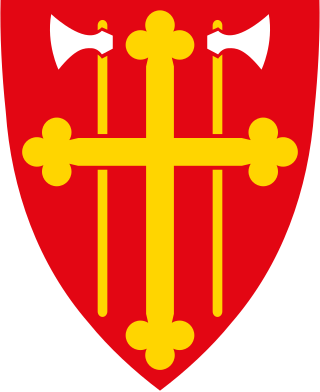
The Church of Norway is an evangelical Lutheran denomination of Protestant Christianity and by far the largest Christian church in Norway. The church became the state church of Norway around 1020, and was established as a separate church intimately integrated with the state as a result of the Lutheran reformation in Denmark–Norway which broke ties with the Holy See in 1536–1537; the King of Norway was the church's head from 1537 to 2012. Historically the church was one of the main instruments of royal power and official authority, and an important part of the state administration; local government was based on the church's parishes with significant official responsibility held by the parish priest.

The Evangelical-Lutheran Church in Denmark or National Church, sometimes called the Church of Denmark, is the established, state-supported church in Denmark. The supreme secular authority of the church is composed of the reigning monarch and Denmark's Parliament, the Folketing. As of 1 January 2024, 71.4% of the population of Denmark are members, though membership is voluntary.
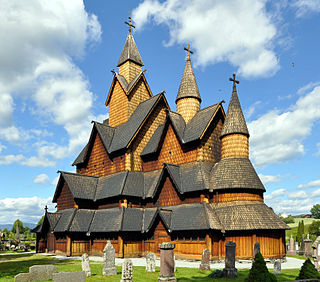
Religion in Norway is dominated by Lutheran Christianity, with 63.7% of the population belonging to the Evangelical Lutheran Church of Norway in 2022. The Catholic Church is the next largest Christian church at 3.1%. The unaffiliated make up 18.3% of the population. Islam is followed by 3.4% of the population.

The Catholic Church in the Faroe Islands goes back to the year 999, when king Olav Tryggvason of Norway sent Sigmundur Brestisson on a mission to the islands with several priests. The islands became an independent diocese in 1111, but were officially reformed in 1537 and the last Catholic bishop was executed in 1538. After 1538, the Catholic Church was only revived in 1931 as a part of the bishopric of Copenhagen. The state church is now the Protestant Faroese People's Church.
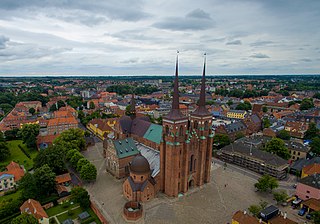
Christianity is the largest religion in Denmark. As of 2022, 72.5% of the population of Denmark were registered members of the Church of Denmark, the officially established church, which is Protestant in classification and Lutheran in orientation.
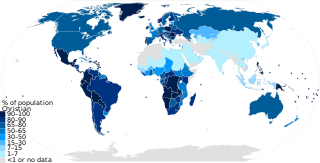
As of the year 2021, Christianity had approximately 2.38 billion adherents and is the largest religion by population respectively. According to a PEW estimation in 2020, Christians made up to 2.38 billion of the worldwide population of about 8 billion people. It represents nearly one-third of the world's population and is the largest religion in the world, with the three largest groups of Christians being the Catholic Church, Protestantism, and the Eastern Orthodox Church. The largest Christian denomination is the Catholic Church, with 1.3 billion baptized members. The second largest Christian branch is either Protestantism, or the Eastern Orthodox Church.
Religion in Iceland has been predominantly Christianity since its adoption as the state religion by the Althing under the influence of Olaf Tryggvason, the king of Norway, in 999/1000 CE. Until then, in the 9th and 10th centuries, the prevailing religion among the early Icelanders — who were mostly Norwegian settlers fleeing Harald Fairhair's monarchical centralisation in 872–930, with some Swedes and Norse British settlers — was the northern Germanic religion, which persisted for centuries even after the official Christianisation of the state.

The Catholic Church in Denmark is part of the worldwide Catholic Church, under the spiritual leadership of the Pope in Rome.

The Catholic Church in Iceland is part of the Catholic Church, under the spiritual leadership of the Pope. The island is served by a single diocese, the Diocese of Reykjavík, having a total of seven parishes. As of 2015, the ordinary is bishop Dávid Bartimej Tencer. The diocese is directly subject to the Holy See.

The Church of the Faroe Islands, also known as the Faroese People's Church, is the established church and the largest religious organization in the Faroe Islands. It is an Evangelical Lutheran church, continuing the Lutheran tradition established during the Protestant Reformation. The church is one of the smallest state churches in the world. Prior to becoming independent on 29 July 2007, it was a diocese of the Church of Denmark, also a Lutheran church. As of 2023, 77.0% of the Faroe Islanders belonged to the state church.
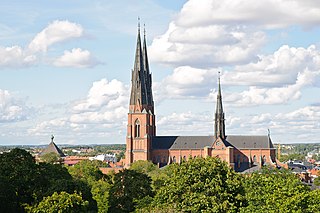
Religion in Sweden has, over the years, become increasingly diverse. Christianity was the religion of virtually all of the Swedish population from the 12th to the early 20th century, but it has rapidly declined throughout the late 20th and early 21st century.

Finland is a predominantly Christian nation where 65.2% of the Finnish population of 5.6 million are members of the Evangelical Lutheran Church of Finland (Protestant), 32.0% are unaffiliated, 1.1% are Orthodox Christians, 0.9% are other Christians and 0.8% follow other religions like Islam, Hinduism, Buddhism, Judaism, folk religion etc. These statistics do not include, for example, asylum seekers who have not been granted a permanent residence permit.

The Faroe or Faeroe Islands, or simply the Faroes, are an archipelago in the North Atlantic Ocean and an autonomous territory of the Kingdom of Denmark. The official language of the country is Faroese, which is closely related to and partially mutually intelligible with Icelandic.

A national church is a Christian church associated with a specific ethnic group or nation state. The idea was notably discussed during the 19th century, during the emergence of modern nationalism.
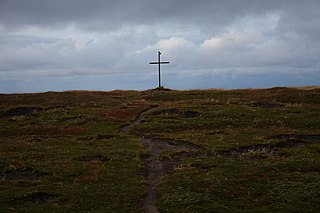
Christianity is the largest religion in Norway and Norway has historically been called a Christian country. A majority of the population are members of the Church of Norway with 64.9% of the population officially belonging to the Evangelical Lutheran Church of Norway in 2021. At numerous times in history, Norway sent more missionaries per capita than any other country. This changed considerably from the 1960s. In 2004, only 12% of the population attended church services each month. The Church of Norway receives a fixed sum from the Government not based on membership numbers. Other religious organisations receive approximately the same amount per member.

A Christian state is a country that recognizes a form of Christianity as its official religion and often has a state church, which is a Christian denomination that supports the government and is supported by the government.
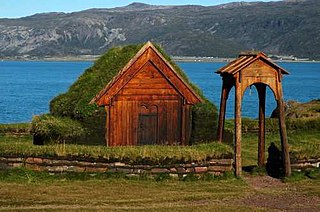
The majority of the Greenlandic population is Christian and associates with the Church of Denmark via the Church of Greenland, which is Protestant in classification and Lutheran in orientation. The Church of Denmark is the established church through the Constitution of Denmark; this applies to all of the Kingdom of Denmark, except for the Faroe Islands, as the Church of the Faroe Islands became independent in 2007. But traditional Inuit spiritual beliefs remain strong in many of Greenland's remote communities.

Religion in the Falkland Islands is predominantly Christianity, of which the primary denominations are Church of England, Roman Catholic, United Free Church, Lutheran, Jehovah's Witnesses, Seventh-day Adventists among others. In the 2006 census most islanders identified themselves as Christian, followed by those who refused to answer or had no religious affiliation. The remaining 1.3 percent were adherents of other faiths.
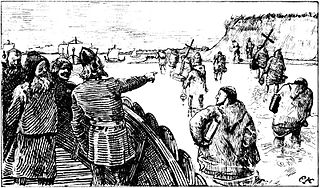
While the constitution of Norway establishes that the King of Norway must be Evangelical Lutheran, it also establishes that all individuals have the right to exercise their religion. The government's policies generally support the free practice of religion in the country, and it provides funding to religious organizations and anti-discrimination programs on a regular basis. According to non-governmental organizations (NGOs) and the Norwegian police, religiously motivated hate speech is prevalent, particularly online, and primarily targeting the Muslim and Jewish communities.



















